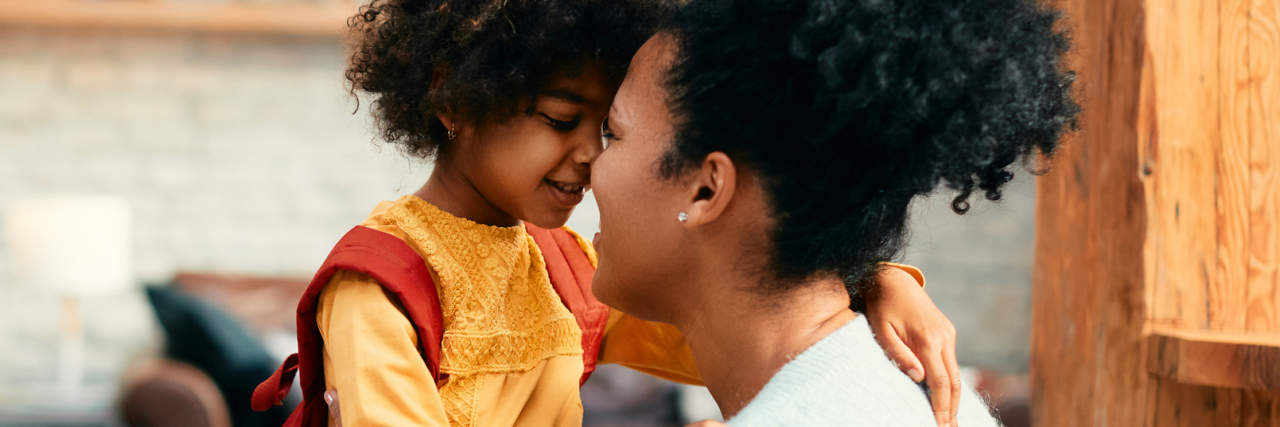As the new school year is upon us, families will be adjusting to new routines, teachers, classes, classmates, and even new schools. During this transitional period, anxiety can be at an all-time high for everyone involved. With the recent shift from virtual learning to hybrid and now fully in-person classes, there are new social pressures, plus safety concerns. Mental health is now a growing concern both for youth and their parents as we enter this new school year.
I had the pleasure of interviewing Dr. Anisha Patel-Dunn, D.O., psychiatrist, mom of two, and chief medical officer at LifeStance Health about how we can better care for the mental health of our children as they begin a new school year. I hope you enjoy my chat with her below.
1. What are some simple steps parents can take to calm their child’s back-to-school anxiety?
Back-to-school stress is common and can be caused by several different factors for children. One of my biggest pieces of advice is to talk with your child about what they might be feeling — nerves about making new friends, stress about a new school or teacher, anxiety about being away from home, etc. One way to try to get them to open up more freely would be to wait until after your bedtime routine — when the lights are out and they are getting ready to sleep, stay for a few extra minutes, and talk with them in the dark. I find that it’s easier for some children to free-associate and share more openly when they are comfortable, relaxed, and don’t feel like there is a spotlight on them or that you’re watching for their reaction.
2. What are some best practices for parents to calm their child’s anxiety when starting at a new school or first day?
It’s normal for children to feel anxious about adjusting to new environments and new people. If you’re aware of neighbors or other families that might already be students at the school that your child is starting at, I’d recommend reaching out to other parents to set up a play date or meet up before school starts so that your child can have some friendly faces that they already recognize on their first day. Depending on how your child will be getting to school, I’d also suggest driving along the bus route or walking to school together a couple of weeks before the first day, so that they know what to expect that morning. If you start to mimic their routine a little early, the first day of school will be a little less pressure-packed and unfamiliar.
3. How can parents best support their child’s transition if they are going from hybrid learning to fully in-person classes?
If a child is accustomed to being at home in a virtual setting for school, it might be jarring to enter into a classroom full-time. The ongoing pandemic has made feelings of separation anxiety more common, and my advice, if your child is experiencing this, would be to set up small ways for them to comfort themselves at school. When my daughter was experiencing these feelings, we wore matching hair ties on our wrists that she could touch when she was feeling sad and know that I was thinking about her while I was at work. She also brought a picture of our family with her to school that she could look at whenever she wanted to.
4. Many children missed crucial social and developmental milestones during the pandemic. What should parents keep in mind when talking to their children about new social and peer pressures at school?
The most important thing to keep in mind is to be kind to your child and to yourself. Children missed out on two-plus years of interacting and learning with their peers, and they may not developmentally be exactly where they would have been if the pandemic never interrupted their lives. Have patience with them as they readjust.
5. How can parents continuously monitor their child’s mental health (without being overbearing)?
Some signs that a child might be experiencing a challenging time with their mental health might include dramatic changes to their sleeping or eating habits, lack of interest in activities that usually brought them joy, lack of interest in any social activities or interacting with friends, extreme mood swings, lack of energy or motivation, etc.
6. This school year brings heightened concerns around safety and gun violence in schools. What’s the best approach for parents to take when discussing these challenging topics and what are some tips and/or strategies that provide reassurance and comfort?
Sending your children out into the world can be extremely stressful, especially when horrifying tragedies are making the news more frequently and your world doesn’t feel safe. When experiencing this type of anxiety, it’s important to always know how to calm yourself down when your emotions start a downward spiral. Children are highly susceptible to the emotions of their parents. If parents are feeling stressed or nervous about their kids heading back to school, whether it’s related to COVID-19, unsafe school environments, or any other reason, it’s easy for children to pick up on. Breathing exercises, taking a walk outside, and calling a family member or friend to talk about what you are feeling can all be good ways to de-escalate your anxiety. It’s also important to recognize that if your anxiety is happening continuously or becomes unmanageable, you should seek the support of a licensed mental health professional.
Getty Images photo via Drazen Zigic

